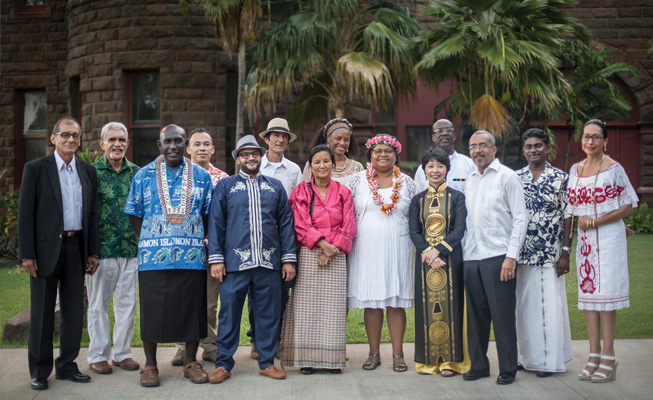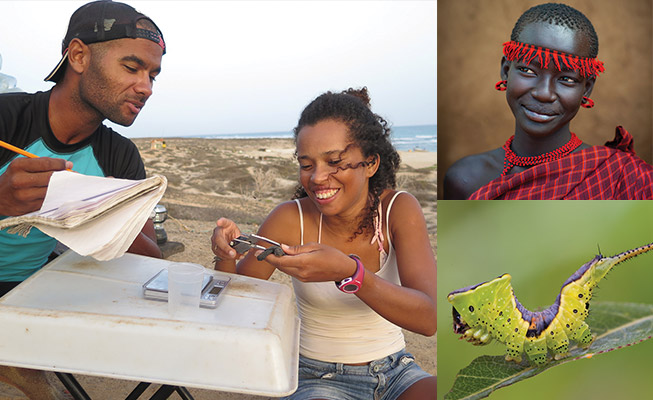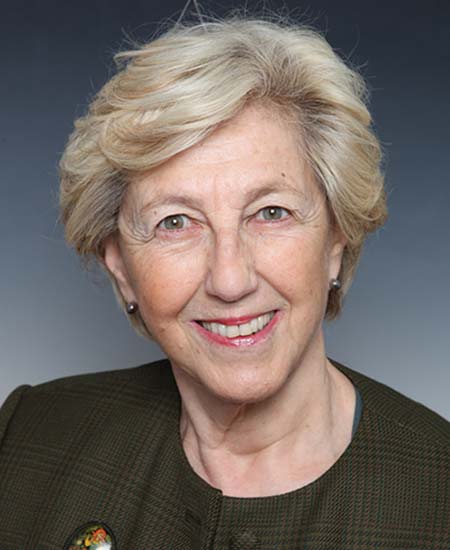Message from the Chairperson
Empowering local conservation champions in the biodiversity hotspots
I was especially pleased not only to join CEPF in 2016 as its new Donor Council chairperson, but also to make my debut in that role during CEPF’s 15th anniversary celebration at the International Union for Conservation of Nature (IUCN) World Conservation Congress held in Hawaii. The event brought together 15 grantees whom CEPF designated “Hotspot Heroes” in recognition of their outstanding achievements in conservation of the world’s biodiversity hotspots.

From a Bhutanese woman fighting to save one of the rarest birds in Asia; to a Peruvian landowner bringing together indigenous people, farmers and environmentalists to prevent illegal gold mining; to the founder of a Tunisian organization teaming up with local communities to halt overfishing—CEPF’s Hotspot Heroes truly stand out for their commitment, resilience and results. They represent the vitality and efficacy of local environmental leadership, which CEPF has been encouraging all along.
Although I had long been acquainted with CEPF, hearing the Hotspot Heroes’ stories was the best possible introduction to the partnership from my new perspective as chairperson. Since it began grantmaking in 2001, CEPF has provided support to more than 2,100 civil society organizations, representing a multitude of heroes. These grantees, from 92 countries and territories, have delivered an invaluable return on investment, protecting some of the most biologically diverse areas on the planet and building their own ability to lead their countries to a sustainable future.

A few examples of what grantees have achieved collectively with more than US$206 million in CEPF funding include:
- Contributing to the establishment of 14.5 million hectares of protected area.
- Leveraging nearly US$369 million in additional funds for conservation.
- Supporting the survival of more than 1,200 globally threatened species.
- Establishing 119 partnerships and networks to strengthen conservation cooperation.
With such grantees and results in mind, I eagerly embrace the responsibility of helping CEPF and its donor partnership build on the successes of the initiative’s first 15 years. The need has never been greater for the unique role CEPF fills as a catalyst, empowering local and national NGOs to respond to the conservation challenges faced in the biodiversity hotspots.
Pressures on biological diversity and ecosystems are tremendous and ever-growing, as is the need to preserve these natural assets for their economic and cultural value, and their critical role in climate change mitigation and resilience. Earth needs champions to demonstrate to the public, governments and private sector operators that ecosystem conservation translates into improved quality of life. CEPF’s grantees have shown that they have the knowledge, tools, and heart to address the most pressing environmental challenges. The support that CEPF provides enables grantees to use their talents to benefit biodiversity conservation and, by this means, human society as a whole.
— Julia Marton-Lefèvre, CEPF Donor Council chairperson, executive fellow, School of Forestry and Environmental Studies, Yale University, and former director general of IUCN
Photo Credits
Hotspot Heroes
CEPF grantees recognized as Hotspot Heroes for their outstanding contributions to conservation, from left: Victor Zambrano, George Mateariki, David Boseto, Andry Petignat, Ahmed Ghedira, Cesar Antonio Franco Laverde, Rebecca Pradhan, Milagre Nuvunga, Lipalesa Sissie Matela, Dao Thi Nga, Selete Nyomi, Sesar Rodriguez, Subbaiah Bharathidasan and Damaris Sanchez. Not pictured: Lu Zhi. © Conservation International/photo by Robin Moore
Julia Marton-Lefèvre. © Julia Marton-Lefèvre
Measuring hatchling loggerhead sea turtles, Cape Verde. © Conservation International/photo by Pierre Carret
Bodi Tribe woman, Omo Valley, Ethiopia. © Eric Lafforgue/Alamy Stock Photo
Prominent moth caterpillar, Sichuan, China. © Piotr Naskrecki


